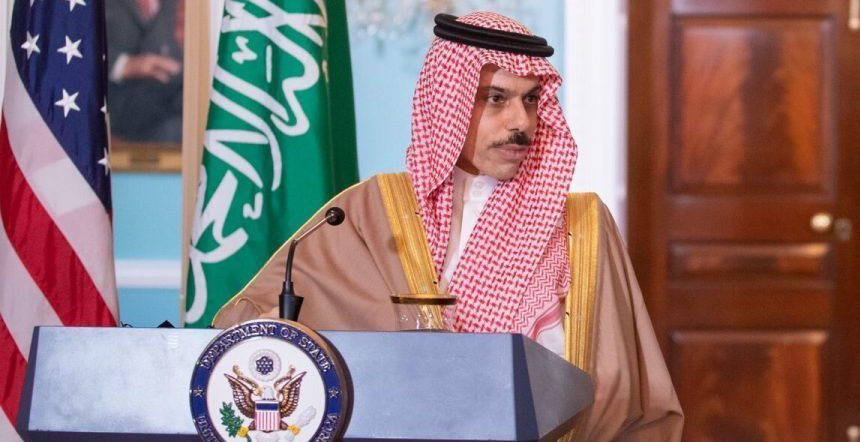Reports claimed that the US was planning on establishing the alliance during the high-profile summit.
A potential formation of a Middle East alliance was not raised during the joint GCC+3 Summit with the US in Jeddah on Saturday, Saudi Arabia’s Foreign Minister Prince Faisal bin Farhan told the press.
“There is no such thing as an Arab NATO and this is not on the table,” said the Saudi official following the Jeddah Security and Development Summit.
The high-profile meeting was attended by leaders of the GCC plus Jordan, Iraq and Egypt as well as US President Joe Biden.
Prior to Biden’s regional tour, which started in Tel Aviv, speculations over a possible regional alliance involving Israel had floated around. Reports suggested the bloc would tackle Iran’s perceived threats in the region.
However, Prince Faisal dismissed the presence of such a military or technical alliance with Israel.
“I don’t know where this news came from,” said the Saudi official.
The Saudi diplomat pointed towards Saudi Arabia’s proposal of a joint Arab defence system five years ago, under which it hoped to boost Arab coordination in security and defence.
However, the matter was not discussed during the Jeddah meeting and no such bloc has materialised.
Prince Faisal’s statements also come after rumours of possible normalisation between Saudi Arabia and the occupying state of Israel. Those claims were amplified after the kingdom opened airspace for all flights, including those coming directly from Tel Aviv.
Before heading to Jeddah, Biden said it will take “a long time” for normalisation between Saudi Arabia and Israel.
“That’s going to take a long time, but increasing their relationship in terms of the acceptance of each other’s presence, working together on certain things, it all makes sense to me,” the US leader told Israel’s Channel 12 on Wednesday.
Analysts had previously dismissed a possible anti-Iran alliance, especially one that includes the Zionist state given that some members in the region have yet to normalise with Israel.
‘Iranophobia’
The concept of an alliance has existed for years under the former US Donald Trump administration, though it has never materialised.
Trump had promoted a Middle East Strategic Alliance (MESA), proposed by Saudi Arabia, in 2017, shortly before the GCC crisis. The alliance was also seen as an attempt to counter perceived threats to the region by Iran and its proxies.
MESA was another part of Trump’s anti-Iran rhetoric, which was further highlighted when he unilaterally withdrew Washington from the Joint Comprehensive Plan of Action (JCPOA) in 2018.
Commenting on Biden’s reported attempts of fueling regional tensions with Iran, the Islamic Republic’s Foreign Ministry said that the US has used “Iranophobia” throughout its regional meetings.
“The US has once again sought to create tension and crisis in the region by appealing to the failed policy of Iranophobia,” said Iran’s Foreign Ministry spokesperson Nasser Kanaani on Sunday, as quoted by state media.
As headlines claimed an Arab NATO was in the talks, Kanaani slammed the reported attempts of establishing the alliance as “provocative” and would “have no result other than weakening common regional security and serving the security interests of the Zionist regime”.
Addressing leaders at the summit, Saudi Arabia’s Crown Prince Mohammed bin Salman (MbS) invited Iran to cooperate with countries of the region instead as Biden accused Tehran of “destabilising” the area.
Saudi Arabia and Iran’s ties have also appeared to warm, with the two states holding four rounds of talks last year as well as a fifth in April.
On the other hand, tensions between the US and Iran have been on the rise as talks aimed at reviving the JCPOA yield no results. The talks started in Vienna last year with a new round being held in Qatar in June, though that ended without a breakthrough.
On Saturday, Iran imposed sanctions on 61 more Americans, including former US Secretary of State Mike Pompeo for supporting an Iranian dissident group. This came after Washington announced fresh Iran-related sanctions, targeting a network of Chinese and Emirati companies, among others.
The US accused the sanctioned companies of “helping to deliver and sell Iranian petroleum and petrochemical products to East Asia.”







